
I was sitting at the Rhodes Memorial in Cape Town with B, when suddenly I was tapped.
I swung around to be met by a dark mopped stranger with this delicious grin on her face.
“Gaynor?” A stranger that knew my name. “I would recognise your voice anywhere!”
Obviously B and I, both being deaf, had been speaking fairly loudly. This stranger gave a laugh. I had heard that wide, open laugh before. And those wicked devil may care eyes spoke to me of a time in my past. I didn’t think that this stranger was a stranger, after all. Who was she?
Guessing the quandary I was in, she said:
“We met about 40 years ago, during our first year of Varsity. I am Sally-Ann Murray.”
“Sally-Ann Murray!” I leaped up to engulf her in a hug. “We were both drummies together!
“Ssshhhhh, not so loud, please!” Sally-Ann begged.
“Drum majorettes,” I said in a whisper. “Glory, Sally-Ann, that was a whole lifetime ago.
We had both studied English at KZN University. Sally-Ann had walked off with the Cum Lauder for English! I laughed at the fact that when I clicked who Sally-Ann was, I didn’t think: ‘Oh, my old English compatriot!’
On hearing her name, my first thought was: ‘Drummies’!!!

I have this image of us young seventeen year olds marching in long trails around the KZN University hockey fields. We were dressed in minute red practice shorts with white t- shirts that had SHE printed on the front. We were practicing for the Rand Easter Show where we would be pitted against other university drum majorette teams. In 1980, the KZN University drummie team won at the Rand Show. I have no memory of our win but I have seen photos of the black and white parade uniform that Sally-Ann and I wore.
We were great drummies!

“Glory, I haven’t seen you since our Varsity days. What do you do now, Sally-Ann?”
“I’m the Chair of English at Stellenbosch University.”
“Wow! I remember sitting next to you in English lectures and now you are ‘Ms Chair’ at Stellenbosch. That’s incredible,” I laughed.
We exchanged phone and email addresses.
“And, Gaynor, call me Sam, it’s much easier.”
Sam – Sally-Ann Murray. I loved that name. It felt just right!
I left there, my heart singing at having re-encountered this old Varsity friend of mine. Sam! I laughed. I really wanted to keep in contact with her.
Sam duly sent me photos of her family and I sent her photos of my menagerie! Perdita, my wire haired dachshund, is fifteen years old now. I cannot ever envisage a day when she leaves this world and moves to that ‘other place’. I sent Sam a photo of Perdita and expressed exactly this sentiment. She replied by sending me this incredible poem she had written:
Old Dog Woman
The last one leaves her a wide bed.
Bony feet. Cold air where long ago
a lover once curled against the thin
animal ridges of her spine.
Slow paws. Grey head. The new dog arrives upstairs. Call it that, or heaven. Comfort without Cortisone, among every stripe every colour. The rain, if it rained, would be cats and dogs. Unbelievable, but true. Heads in the clouds the animals chew the fat of missing years, stretched out like pools of lazy sun. Come dinner, they feast on air, which doesn’t taste bland, as you might think. The new dog wolfs it down, this filling emptiness. The flyless sleeps. This nameless place is paradise.
So passes the first day,
old dog growing younger by the second.
Downstairs, where old dog is dead,
no one knows this. If they did,
you would be taken for a fool,
your credulity ridiculed.
Hi
(Some people think they
know everything about dogs
and about everything more
besides. They will do any
thing to break your spirit.)
But this dog love is here
with you to stay.
In time, perhaps
you will understand.
Below, old dog woman microwaves her unfinished mug
of cold morning coffee, as she does every afternoon.
When the timer pings, she feels surprise.
She goes to the window, holding the leash
because she’s holding the leash. She looks out.
Stares at the garden gate. Tries not to cry.
She folds up the soft harness. Cries.
Now it seems so easy to die, yet here she is.
Still alive. Olive tree. Wild iris. Blushing bride.
Spider begonia. Grass aloe. Artillery cover.
People waiting at the bus stop always say
her garden is a picture. There is no one right now.
She walks to the bedroom. Looks at
the three-quarter bed that’s always been
just right. She straightens the quilt
and plumps the pillow. She folds
the dog blanket neatly in the basket.
She goes back to the kitchen.
She warms the mug again.
The clock ticks loudly.
My old friend was both a professor and a poet!
How I love this poem and my heart aches for the woman with the useless leash in her hand. When I acted, I searched for the essence of the character I was playing. I would use novels, paintings and poetry. If I were to have played a woman who had just lost something special to her, this poem would’ve been invaluable to me!
Sam and I both followed creative careers. I took up acting. Sam began lecturing in English and devoted what spare time she had to writing. I remember being awarded the Most Promising Newcomer Award in Durban for the part of Anne in Anne of Green Gables at the end of my Honours year. This Award gave me the confidence I needed at the start of my acting career. In Sam’s life, poetry played a vital and important role. In 1989, she won her first award: The Arthur Nortje\Vita Award for poetry. And two years later, she was presented with the Sanlam Award for Literature (Poetry). You can’t compare my little award, with these two major South African literary awards. Yet the confidence that was enfolded within them, must have affected Sam in a similar vein as mine had. I asked Sam what her reaction was on getting her first two awards? She replied:
“Hmmm, that’s going way back, but those early awards were validating. I was judged by published poets and experienced critics. They singled me out and made me believe I had something worth working on. But, whew! It’s then years of making good and learning to accept an important lesson – writing is not about prizes!”
I love that remark. Writing is not about the prizes. Sam writes because she feels an irrevocable need to write.

By her teens, writing, like reading, like breathing, had become a central need in her life. In 2009 Sam finally moved from poetry to prose and her novel, Small Moving Parts was published. This was a fictional narrative tinged with autobiographical elements about her white working class childhood in apartheid Durban.
“Why did it take you so long to write your novel?” I enquired.
Sam laughed. “When I began writing, literary fiction felt like the privileged terrain of writers like Coetzee and Gordimer. Awe is such a crushing force! As a young woman, I didn’t have the confidence to attempt anything vaguely similar. So I stuck with my poetry. It somehow seemed more manageable, more inventively possible. As time passed, I got more assured and exploratory. Before I knew it, I had started working on Small Moving Parts. My book was born!
“Beginning to write is an odd thing,” Sam commented. “Every time I write, it’s a ‘beginning’ AGAIN. Another new beginning. That’s quite a daunting thought. But also a relief.”
I thought back to when I wrote my book My Plunge to Fame. This process also brought me relief in that a considerable amount of lost memories were reignited.
Despite publishing her award winning novel, it is poems that are constantly making their presence felt.
“Poetry, for me, is a completely normal part of my daily life,” says Sam.

Poems creeping their way into her life and onto the page! Sam’s third anthology of poetry, Otherwise Occupied is being launched in Cape Town at Exclusive Books, Cavendish on the 10th April. She will be interviewed by the poet and critic, Joan Hambidge. The press release reads:
“Dryad Press, in association with Exclusive Books, is proud to present this serious, often playful, sometimes outrageous volume of poetry by Sally Ann Murray, Chair of the English Department at Stellenbosch University….”
How I would love to be there to witness this playful, outrageous Sally-Ann that I remember laughing with so many years ago. But I am presenting a motivational speech in Durban that day that cannot be missed. Sam says of herself with amusement: “I am a stew, a sieve, a magnet, a compass, a kaleidoscope, a writhing pile of domestic compost…all those give me shape and ideas.”
I wondered how Sam find the time to create and write with her high powered job?
“My job keeps me really busy so I find that the best time to write is early in the morning. I feel both tranquil and lively then, rising to the surface of the day. It’s quiet, with only the still-dark sky and a few starry-eyed bird calls and four black dogs for company. I take the time I have and make the most of it. And if there’s one thing I’ve discovered, growing older, it is that it’s important to be kind to yourself. This is the only life you have. It’s no good lambasting and regretting. If what you can manage, right now, is to finish one short story and submit it: good for you, woman!”
What a wise remark! Too often I have found myself regretting that I didn’t do something. I then metaphorically have hit myself on my chest every time I think of it. What Sam is saying is: Be kind to yourself! Don’t live with regrets. Be in the present and do what you can do. In other words, don’t get into a stew because you can’t go cycling or walking in the forest with your friends. Live in the now and do what you can manage. Therein lies joy!
Sally-Ann Murray and I, togged out in our practice drummie red shorts, marched around that field with the rest of the squad. We muttered expletives every time we missed a step or swivelled the wrong way. I find it strange knowing that the younger person still exists inside all of us. I look at Sam now – Chair of English at Stellenbosch, poet, novelist – with admiration and awe.
And then, with a smile, I remember the drummies!



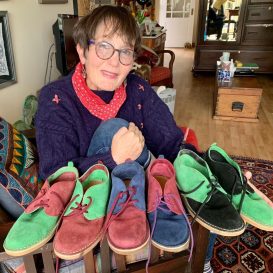



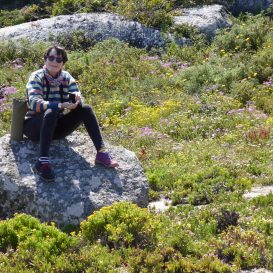

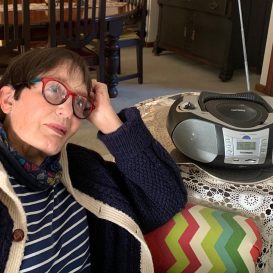

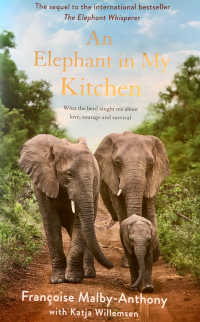

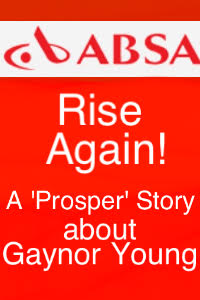

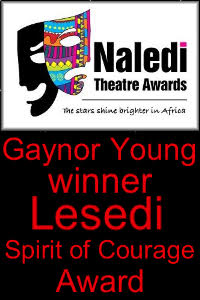



I so enjoyed this Gaynor and I can still picture you marching with the squad and doing your drummy thing. Dad and I enjoyed every minute of it!!!! Well done on this blog.I feel as if I have now met Sam.xx
thank you so much for that delightful story and beautiful poem by Sam! I recently lost my precious cat and the poem brought tears to my eyes.
i love happy reunions
What a great meeting this must have been. So happy I can relate to a small part of this happy recollection. My memories of my drummie days with you Gaynor, and my school and drummie days with Sally Ann are ones of such joy and carefree abandon. xxx
Oh my goodness, Gaynor, what a profound and beautiful piece to wake up to this chilly morning. Sam’s poem moved me to tears . I had to give Mr Pickles a big hug and I shall have to find some more of her work. I love the serendipity of your encounters which you share with us all. I learn something precious with every one of them.
Comments are closed.